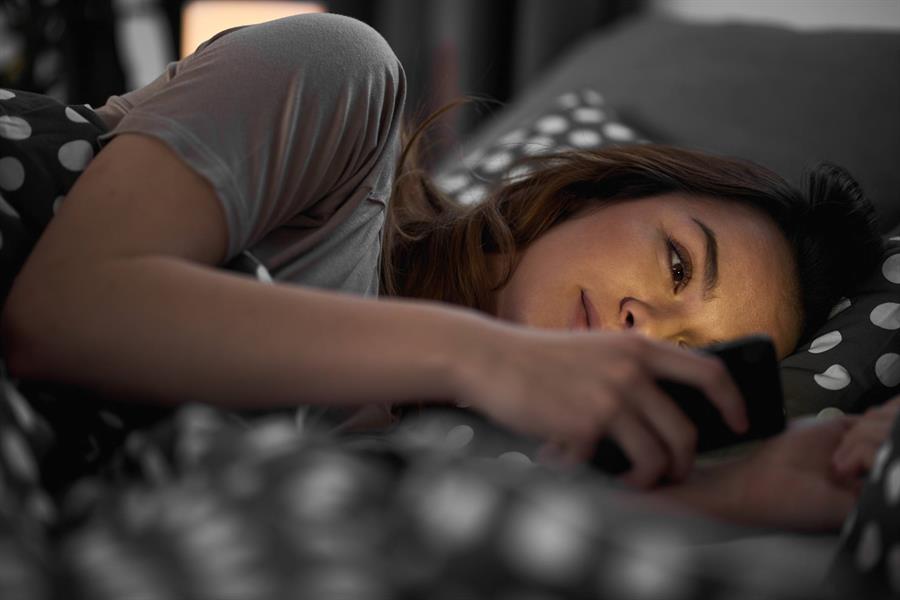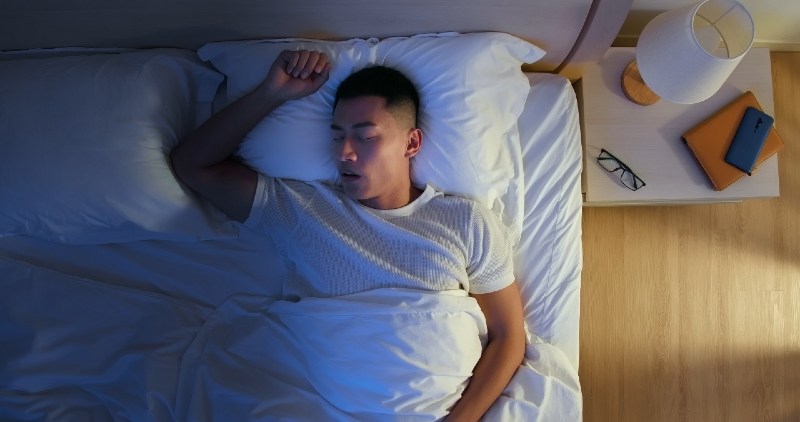- Home
- Mind & body
- All about sleep: The good, the bad and the sleepy
At CBHS we help you manage your health challenges. We believe in offering you the services, support and tools you need to live your best life.
Health and Wellness Programs are available to support eligible members towards a healthier lifestyle. Each Health and Wellness Program is subject to its own eligibility criteria.
Contact us for more information and to confirm your eligibility for a program.
All about sleep: The good, the bad and the sleepy

Did you know we spend around one third of our lives sleeping? That’s a long time – so it must be important, right? Well, judging by how little sleep the average person gets in one night, we’re not placing enough emphasis on the restorative benefits of sleep.
One of the most beneficial things you can do for your health, sleep doesn’t just affect your energy levels the next day. In fact, the impact on your mental and physical health is far greater than you can imagine.
A good night’s sleep can help you with:
- Stress management
- Memory
- Learning
- Focus and concentration
- Stronger immune system
- Weight management
- Removing toxins from the brain
- Greater immune system
- Longevity
- Stabilising hormone levels and much more.
The dangers of sleep deprivation
Can you remember the last time you woke up − without an alarm clock − feeling refreshed, and not needing caffeine? If it’s ‘no’, you’re certainly not alone. A lot of us are going through life, sleep deprived. And it’s far from ideal. In fact, it can be quite detrimental to your short and long term health.
Sleep experts recommend that adults get 7-9 hours of sleep a night. However, 40% of Australians are sleeping far less than these recommendations which can lead to surprising consequences. For example: sleep deprivation affects the human body in a similar way to being drunk. Would you expect to have a productive day at the office if you’d had a few drinks for breakfast? Highly unlikely! Much like alcohol, not getting enough sleep (less than six hours) on a regular basis can have many short-term and long-term effects.
Sleep deprivation can weaken your immune system considerably, increase your risk of a range of chronic conditions such as obesity, cardiovascular disease, stroke and type 2 diabetes. It also can impact fertility and contribute to major mental health conditions, including depression, anxiety, and a higher risk of suicide.
In other words, if you’re regularly depriving your body – and brain – of good quality deep sleep, your physical and mental health can be affected.
Can you catch up on sleep with a weekend lie-in?
It may sound like a good plan but it doesn’t quite work like that. Catching up on sleep isn’t as easy as staying in bed longer on your days off. It can take days or weeks to recover from a bout of sleep deprivation.
If you’re looking to improve the quality – and length of your sleep, you’ll need to look beyond ditching those five coffees you need to get through the day. It’s about taking a deeper look into your daily routine which includes assessing your diet, alcohol intake and bedtime habits.
“Did you know that sleep deprivation affects the human body in a similar way to being drunk?”

The secrets to getting more sleep
The reality is, there are no secrets, just better life choices. And the first thing you can do is improve your sleep hygiene – which has nothing to do with washing your sheets more often! Although, that feeling of crisp, fresh linen is always a pleasure at bedtime…
Here are six things you can do to overhaul your sleep routine for more ‘zzzzz’s!
- Set up a regular bedtime routine
Your body has an internal clock and hormones that control sleepiness and wakefulness. This clock works best if you have a regular sleep routine. So during the day, make sure you’re getting plenty of natural daylight which will help regulate your internal clock. Also, change your bedtime so that you’re sleeping the recommended 7-9 hours a night.
- Keep the hour before bed as wind down time
Develop a routine that prepares your body and mind for sleep. You may find one of the following may work for you: a warm bath or shower, reading, listening to music, candlelight, meditation, breathing exercises, light yoga or stretching.
- Limit stimulants before bed
If you’re using your smartphone, or other electronic devices which produce blue light, at least one hour before bed, you’re actually disrupting the sleep-promoting hormone called melatonin. This includes responding to emails and text messages, TV, computer games and social media. The solution? Avoid brightly lit rooms and devices at bedtime.
You should also save any intense exercising for earlier in the day, avoid caffeine beverages, smoking, alcohol and rich or spicy foods that can interfere with your quality of sleep.
- Focus on rest
If you wake up during the night and struggle to get back to sleep, don’t roll over and grab your phone or tablet. Try to relax and accept you can’t sleep in that moment. Feeling stressed or frustrated will increase your cortisol levels and keep you awake for longer.
If you’re one of those people who over-thinks the day the minute you get into bed, try jotting down your thoughts in a journal. You can even write your to-do list for the next day. The key is to get it all out on paper and calm your mind before sleep. You can also practice a mindfulness activity to keep your thoughts grounded in the present.
- Leave your bedroom if you can’t sleep
Does this sound familiar? You can’t fall asleep, or you wake up in the middle of the night and still haven’t fallen back to sleep after 20-30 minutes. Do you toss and turn? Instead of staying in bed, frustrated, get up and try something new. Go to a quiet and dimly lit space where you can relax until you feel drowsy. Things like reading under a dim light, meditating, breathing deeply or even listening to sleep meditation music can help you feel like drifting off again. If you’re looking for sleep meditation, the Calm or Headspace apps are very popular choices.
“A good night’s sleep can improve your memory, focus, moods, fertility and even your weight management.”

Still struggling with sleep?
If you’ve tried everything to improve your sleep but you’re still waking up feeling fatigued, you may be experiencing a sleep disorder like insomnia or sleep apnoea: this can have serious implications for your long term health. The best advice is to speak with your GP for support and potentially, a diagnosis.
The road to a better night’s sleep begins with you
Building healthy sleep habits, exercising regularly and eating a healthy diet are all key ingredients to enjoying deeper rest every night. In fact, good quality sleep can make all the difference to your physical and mental health.
It can also be said that sleep is one of the highest forms of self-care. So, put yourself first and start to prioritise sleep for a healthier and happier you.
All information contained in this article is intended for general information purposes only. The information provided should not be relied upon as medical advice and does not supersede or replace a consultation with a suitably qualified healthcare professional.
Sources:
https://www.cbhs.com.au/mind-and-body/blog/enjoy-delicious-satisfying-non-alcoholic-drinks
https://www.healthdirect.gov.au/sleep
https://www.health.harvard.edu/staying-healthy/blue-light-has-a-dark-side
https://www.sleepfoundation.org/bedroom-environment/how-to-design-the-ideal-bedroom-for-sleep
https://www.sleephealthfoundation.org.au/files/pdfs/Sleep-Needs-Across-Lifespan.pdf
Health and wellbeing
programs & support
You Belong to More with CBHS Hospital cover:
- Greater choice over your health options including who treats you
- Get care at home with Hospital Substitute Treatment program
- Free health and wellbeing programs to support your health challenges
Live your healthiest, happiest life with CBHS Extras cover:
- Benefits for proactive health checks e.g. bone density tests, eye screenings
- Keep up your care with telehealth and digital options
- Save on dental and optical with CBHS Choice Network providers
